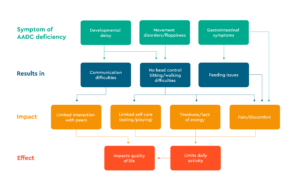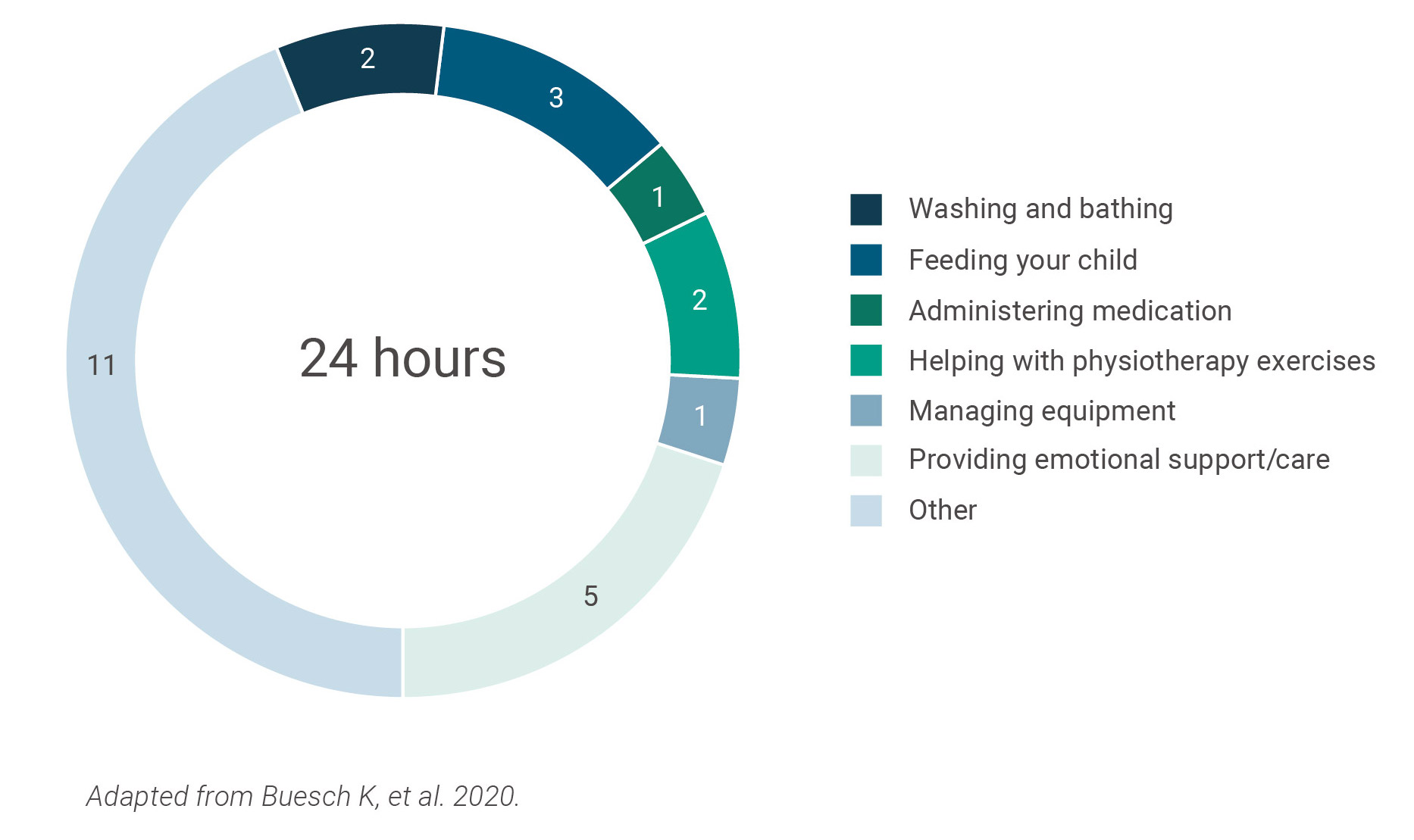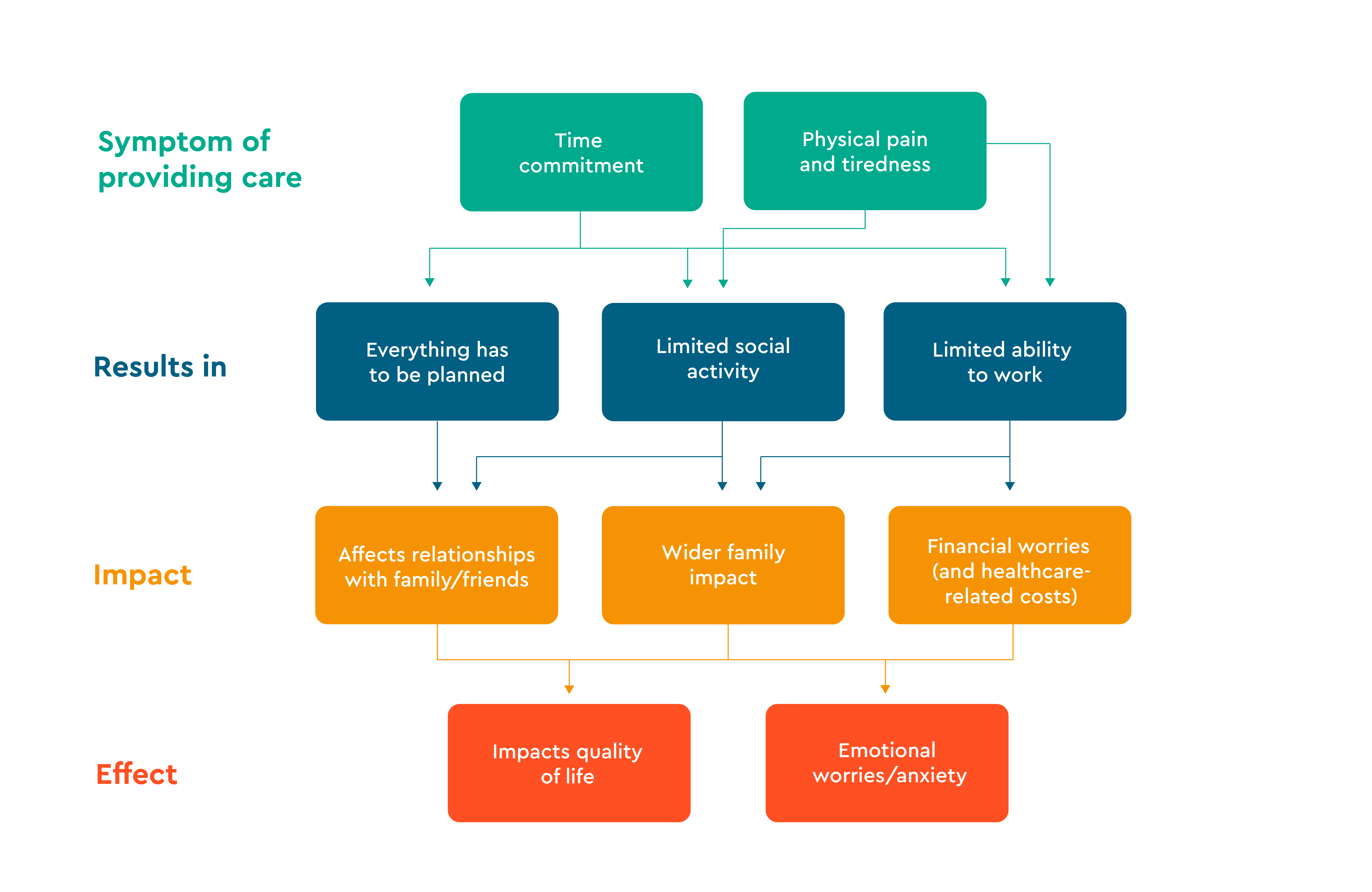
Quality of life with AADC deficiency
What is quality of life and why does it matter?
- Life with a rare disease can often be challenging
- That’s why it is important to understand how having a rare condition, or caring for someone who is affected by one, can affect the quality of patients’ and caregivers’ daily lives
- ‘Quality of life’ considers various aspects of physical and mental health, which might include overall well-being, happiness, access to school or work, energy levels or someone’s ability to carry out daily activities
- Every child is different so their experiences will vary, but AADC deficiency may cause a significant impact on quality of life for patients and their caregivers
Possible impact on quality of life of patients with AADC deficiency
“He has no muscle tone… he cannot control his head, his arms, his legs, his motion” Caregiver of a patient with AADC deficiency
Signs and symptoms vary from patient to patient with AADC deficiency. Those that have been reported the most among patients include:
- Muscle weakness – many children are unable to walk, stand or sit without help
- Patients may have movement difficulties and problems speaking
- Difficulties with basic functions – a study found that 36% of patients with AADC deficiency need feeding tubes and 29% use a ventilator to help with breathing
- Difficulties with sleeping and tiredness
- Communication and cognitive problems
- Pain and discomfort
- Distress associated with symptoms such as oculogyric crises
“He can’t sleep and his eyes are just wide awake, and the frustration is all over his face – you can definitely tell that he has a lot of discomfort” Caregiver of a patient with AADC deficiency
These symptoms and difficulties with day-to-day living have a significant impact on a patient’s quality of life, social interactions and behaviour.
“He can’t actively participate with other toddlers his age” Caregiver of a patient with AADC deficiency

Impact on quality of life of caregivers
Children with AADC deficiency may need round-the-clock care and their needs have a significant impact on the lives of caregivers. Some parents say they spend almost every waking moment caring for their child with AADC deficiency.
“A bad day is where just nothing is working… that’s draining because I’m not able to get other things done, to take care of the regular household” Caregiver of a patient with AADC deficiency
A survey explored caregivers’ experience of living with a child with AADC deficiency; each caregiver spends on average 13 hours per day looking after the practical and emotional needs of their child – regular tasks are listed below:

Attending medical appointments and planning activities can take up time – in the survey, parents said they spend an average of 15 hours a week on administrative tasks related to their child’s AADC deficiency.
As a result, socialising can be difficult and there can be stresses placed on relationships. Working life can be severely disrupted; 75% of caregivers said that they had stopped working or reduced their hours to care for their child. Other caregivers reported pressure with finances.
“My life is scheduled minute by minute. I have to plan things, I cannot miss one hour, I sometimes panic, I get paranoid, because I have to do this and that” Caregiver of a patient with AADC deficiency
As with many chronic childhood illnesses, there is an emotional burden associated with caring for a child with AADC deficiency. Depression, anxiety, and fear for the future have all been reported – alongside physical symptoms, such as back pain resulting from moving a patient.
The impact on quality of life can be significant for carers of children with AADC deficiency in all aspects of life, from emotional and physical health, to relationships, work, finance and constraints on time.
There are a variety of support groups and websites that can help you access information and resources. Find out more about what help is available.

GL-AADC-0988 | February 2023